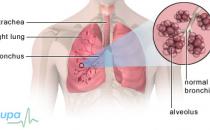Tetanus
This factsheet is for people who have tetanus, or who would like information about it.
Tetanus is a disease caused by a bacterial infection. It affects your brain and nervous system, causing spasms and convulsions that can be life-threatening.
About tetanus
Symptoms of tetanus
Complications of tetanus
Causes of tetanus
Diagnosis of tetanus
Treatment of tetanus
Prevention of tetanus
About tetanus
Tetanus is a condition caused by infection of a type of bacterium called Clostridium tetani, which usually enters your body through a wound. The bacteria produce a toxin that affects your nervous system. This toxin causes your muscles to repeatedly contract and go into spasm.
In 2010, there were almost 9,700 reported cases of tetanus worldwide.
Symptoms of tetanus
Tetanus infection may result in several different patterns of illness.
Generalised tetanus
This is the most common type of tetanus and can be life-threatening. You may be infected with the tetanus bacteria for between three and 21 days before having symptoms. The symptoms (once they appear) may include:
- jaw muscle spasms or stiffness (lockjaw)
- muscle stiffness or pain, which usually starts in your neck, shoulders and back
- spasms or convulsions of your body (that can last for up to two weeks), which may be painful and can affect your breathing or digestion
- fever
- sweating
- difficulty swallowing and breathing
- headache
With intensive medical support, eight to nine out of 10 people survive.
Localised tetanus
If you have localised tetanus, bacteria only affect the muscles near the wound where they entered your body. This causes your muscles to go hard and you may have painful spasms. Localised tetanus is rare. It can be treated and isn't usually life-threatening.
Cephalic tetanus
This is another rare form of tetanus. It's most common in children and affects people who have had a head injury or an ear infection. Cephalic tetanus affects the nerves that run from your brain to other parts of your body and may cause paralysis of parts of your face. Cephalic tetanus may develop into generalised tetanus and can be life-threatening.
Neonatal tetanus
This affects newborn babies in less developed countries, particularly in Asia and Africa, and is often fatal. The symptoms are similar to generalised tetanus and occur within two weeks of birth. Babies with neonatal tetanus may:
- not feed well and not put on weight
- appear stiff or rigid
- have spasms
Complications of tetanus
Without treatment, tetanus is usually fatal, but people can survive with intensive medical therapy. The spasms or convulsions may be violent and you can stop breathing or have a heart attack. Other complications of tetanus include:
- pneumonia and other infections
- fractures – broken bones caused by spasms or convulsions
- abnormal heart rhythm
- coma
Causes of tetanus
Tetanus is caused by a toxin produced by a bacterium called C. tetani, which is found in soil and animal faeces. It can cause a tetanus infection if it enters your body through a wound or a cut. You're most likely to develop an infection if you have a wound that was caused by something dirty, such as a knife or nail, or an animal bite. Babies can get neonatal tetanus via a healing umbilical stump that hasn't been cleaned properly or that has been cut with an instrument that isn't sterile.
Most people who get tetanus haven't been immunised, or haven't had their tetanus booster. If you haven't been immunised or you haven't had your booster, you can get tetanus if:
- you have a wound and it becomes infected – this may be minor such as a scratch or cut, or you may have had a piercing
- you inject drugs or medicines using a needle that isn't sterile and has tetanus bacteria on it
Tetanus can't be passed from person to person.
Diagnosis of tetanus
If you have had a wound as described above, you should seek urgent medical attention. If you have a recent wound and muscle stiffness or spasms, starting near the wound and progressing elsewhere, this could indicate the initial symptoms of tetanus and you will need immediate medical attention.
The diagnosis of tetanus is usually based on the characteristic symptoms and signs. It may be confirmed by taking a blood test that looks for traces of the toxin in your blood.
Please note that availability and use of specific tests may vary from country to country.
Treatment of tetanus
Your doctor will clean your wound thoroughly, and any dead tissue will be removed to help prevent further infection. You will be given an injection, which will work against the toxins produced by the bacteria that cause tetanus. You will also be given intravenous antibiotics to treat the infection and medicines called muscle relaxants, such as diazepam or lorazepam, if you're having muscle spasms.
You will usually need to stay in a critical care unit in hospital and will be linked to a heart monitor and may need to be put on a ventilator to give you help with breathing. If you're having trouble swallowing, you may need to be fed through a tube that will be put through your nose and into your stomach, or you may be given liquid nutrition through a drip.
Availability and use of different treatments may vary from country to country. Ask your doctor for advice on your treatment options.
Prevention of tetanus
Tetanus can be prevented through immunisation with a vaccine. It can also be prevented in newborn babies by immunising women of childbearing age, either during or outside of pregnancy. The World Health Organization recommends that if you want to be protected throughout life, you should have the vaccine in infancy, followed by a booster at school-entry age (between four and seven), then in adolescence (12 to 15), and also in early adulthood.
If you have a wound with any dirt in it, seek medical advice. If you have a cut or weeping wound, such as a burn, you may need a booster dose of tetanus vaccine as a precaution. You may also be given a dose of tetanus immunoglobulin which is a protein (antibody) to help your body fight any tetanus infection you might develop. Ask your doctor for more advice.
Produced by Krysta Munford, Bupa Health Information Team, August 2012.
This section contains answers to common questions about this topic. Questions have been suggested by health professionals, website feedback and requests via email. See our answers to common questions about tetanus, including:
I think I may have missed my booster injection. What should I do?
Will I have a reaction to the jab?
I am travelling to an area where there is tetanus. Do I need to have the injection if I have had my regular boosters?
I think I may have missed my booster injection. What should I do?
If you have missed your booster, you should book an appointment with the nurse at your GP practice as soon as you can to get your booster injection.
Explanation
You should have five tetanus vaccines in total to provide you with complete protection. By ensuring you have all your booster injections, you can stop yourself getting tetanus. If you’re unsure, your GP practice may have a record of your last injection. It's useful to keep a note of the injections you have so you’re aware of when you need a booster.
Will I have a reaction to the jab?
Some people may have a reaction to the tetanus vaccine.
Explanation
You may have pain, swelling or redness in the area where you have had the jab. Sometimes there may be a small lump that goes hard, but this isn't painful.
Occasionally, some people have a fever, convulsions, develop pale or bluish skin, go limp or have an allergic reaction to the vaccine. Ask your GP to explain these risks to you.
A small number of people may have an anaphylactic reaction to the vaccine. This is when your body reacts to the vaccine, you have problems breathing and your blood pressure changes. This is very rare and happens to less than three in a million people. If you’re concerned or have had a reaction to a vaccine before, ask your GP for advice.
I’m travelling to an area where there is tetanus. Do I need to have the vaccine if I have had my regular boosters?
If you have already had all five doses of the vaccine, you usually won’t need any more. However, if you’re travelling somewhere where you may not have access to medical treatment, you may need to have a booster.
Explanation
If you have had five doses of the tetanus vaccine, you should be protected against tetanus for life. However, depending on where you’re travelling to, you may need to have a booster vaccine even if you have already had the five vaccines. If you’re travelling somewhere where medical attention may not be accessible, and haven’t had a booster for the past 10 years, you may need to have one before you go. This is in case you get a wound that could become infected with tetanus, but medical treatment isn’t available.
Contact your GP to find out whether you will need a booster before you travel.
Further information
World Health Organization
www.who.int
Sources
- Tetanus – General Information. Health Protection Agency. www.hpa.org.uk, accessed 15 June 2012
- Tetanus. The Merck Manuals. www.merckmanuals.com, published August 2009
- Tetanus. National Travel Health Network and Centre (NaTHNaC). www.nathnac.org, accessed 15 June 2012
- Travel Health Information sheets: tetanus. National Travel Health Network and Centre (NaTHNaC). www.nathnac.org, published June 2007
- Tetanus. eMedicine. www.emedicine.medscape.com, published September 2011
- Immunisation against infectious diseases: the green book. Department of Health. www.dh.gov.uk, published 2006
- Joint Formulary Committee. British National Formulary. 63rd ed. London: British Medical Association and Royal Pharmaceutical Society of Great Britain; 2012
- Tetanus. World Health Organization. www.who.int, published 13 February 2008
This information was published by Bupa's Health Information Team and is based on reputable sources of medical evidence. It has been peer reviewed by Bupa doctors. The content is intended for general information only and doesn’t replace the need for personal advice from a qualified health professional.
Related topics
Antibiotics
Childhood immunisations
Fractures
Pneumonia
















